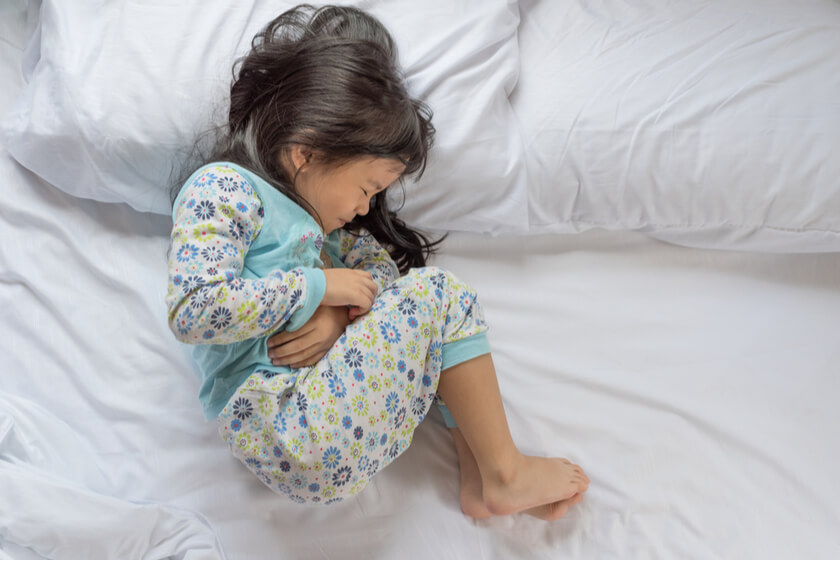Can Constipation Cause Fever? Here’s What You Should Know

Constipation is a bowel movement disorder that makes people experience difficulty in emptying their bowels. A person can be suffering from constipation if they have less than three stools per week, or their stool is hard and difficult to pass.
However, it’s usually not dangerous, even if it causes cramping, bloating, and discomfort in your abdomen. In some cases, though, it may cause other more serious symptoms such as fever.
Let’s dive into why constipation and fever occur at the same time and delve deeper into its symptoms and causes.
Can Constipation Cause Fever?
There is little consensus on whether or not constipation can cause fever. If you’re constipated and feeling bloated or incompletely evacuated along with a fever and feeling of nausea, you may have an illness that involves constipation. So, constipation and fever may be caused by the same thing, but that doesn’t mean one caused the other.
When you have diarrhea, you lose a lot of water through frequent bowel movements. But if you are having constipation, you experience infrequent or slow-moving bowel obstruction. This makes the human body retain some water which makes you feel bloated, gives you heat around your abdomen, and even severe abdominal pain.

Advertisement
In general, fever is caused by the increased pressure on your lower abdomen, which increases blood flow through your blood vessels. Hence causing the body temperature to rise to reduce the internal temperature of the body, making you feel feverish.
Yet another reason why you may have constipation, as well as fever, is the consumption of contaminated food and/or water. In this case, the responsible factor would be a viral infection, bacterial infection, or parasitic infection.
Constipation is only to be blamed for making your body more vulnerable to infection. However, constipation can easily be relieved by developing some simple habits in our lifestyle.
Symptoms of Constipation
Harvard Medical School states that typically constipation isn’t related to an illness. It’s usually caused by lifestyle, diet, or some other factor that hardens the poop and/or interferes with its ability to pass with ease and comfort.
However, constipation stinks, literally and figuratively. What’s worse is the physical and emotional symptoms of constipation that can really make life difficult. Let’s look at some of the most typical symptoms of constipation before the condition turns chronic.
- Less than three bowel movements a week
- Hard, dry, or lumpy stool that is painful to pass
- The feeling of a blockage in your butt
- Manual maneuvers like pressing your stomach to facilitate the defecations
While these are the easy-to-observe symptoms, there are more you should be alert about. These are:
- Abdominal discomfort like pain and bloating
- Rectal discomfort
- Sensory dysfunction
- Fecal incontinence
- Flatulence accompanied by bloating
What Can Cause Constipation?
It is common knowledge that eating too many carbs and not enough vegetables can affect bowel function. While this is true, there are more causes of constipation than just a lack of fiber in the diet. Here we summarize the causes that are scientifically proven to cause constipation.
#1 Lack of fiber and liquid consumption
People with a low dietary fiber intake are prone to constipation, which is marked by infrequent and difficult defecation. This is more so when combined with dehydration, as the combination greatly inhibits the ability of any solid waste product to move through the colon.
So, a high-fiber diet is essential for maintaining a healthy digestive system. It promotes regular bowel movements and protects against constipation, hemorrhoids, rectal prolapse, and even colon cancer. Ideally, the average healthy person should consume between 20 and 35 grams of dietary fiber each day.
#2 Sedentary lifestyle
Did you know that when you don’t stay active for a long period, it can lead to constipation? If you’re sedentary or bed-bound, constipation is more likely to affect you, and this theory is scientifically backed by a study carried out in 2013.

So, if you are having bouts of constipation despite your seeming adherence to a healthy diet, consider increasing your physical activity. For instance, running may stimulate muscle contractions in the digestive tract, helping push food and waste products through your gastrointestinal tract.
#3 Side effects of some medicine consumption
Certain medications, like those used to treat high blood pressure, asthma, and diabetes, can increase the risk of constipation. For instance, diuretics (water pills) are often prescribed to treat congestion in the lungs; however, they may potentially cause dehydration, leading to constipation.
You should also be careful about the intake of antibiotics as they have the potential to cause constipation. It’s best to talk to your doctor about potential side effects when taking antibiotics to avoid compromising your gut health.

Fortunately, laxatives and stool softeners can help in treating constipation caused by these medications. But it’s important to take them only as directed since excessive use of laxatives has been associated with dehydration, electrolyte imbalance, and even damage to the intestinal tract.
#4 Pregnancy tenure
You’re not alone if you’re experiencing constipation during pregnancy. When you’re in the early stages of pregnancy, it’s normal not to have any bowel movements every day. And if you also have a history of having irregular bowel movements, then it’s normal to not go for 2–4 days without a movement.

Most women are familiar with the drastic change in their digestive tract, particularly the colon. The baby puts pressure on the bowels and slows down the movements, especially when a woman is more than halfway through her pregnancy. It’s no wonder that some women have to use stool softeners or stool laxatives to keep their bowels moving at a somewhat normal pace.
Fever and Constipation in Children
Are you concerned that your child might have a problem with chronic constipation? Are they visiting the bathroom frequently, but their stools are hard or dry? Has their poop been changing color? These are all common side effects of constipation in young children.
This usually happens when a child eats too much or does not eat enough fiber. Constipation prevents effective liquid and nutrient absorption by the intestines, which may lead to the loss of vital nutrients for your child’s overall health.

Some of the common symptoms of a constipated child include a firm or distended abdomen, low energy, and irritability. The additional symptoms you should watch out for in your child are:
- Less than three bowel movements per week
- Stomach pain
- Painful bowel movements are difficult to pass because they are hard or dry
- Pain while having a bowel movement
Fever and constipation in children explained
Did you know that 90% of children with constipation have “functional” constipation, which means they don’t have any underlying disease? If constipation lasts more than a week and/or is accompanied by fever, it could indicate an underlying disease. Chances are your child has typhoid fever caused by contaminated food and water.
Also, if your child has severe constipation in the presence of fever or if your child’s condition does not improve despite treatment, you may want to have them screened for a blockage of the large intestine. In most cases, constipation and fever are not dangerous.
However, if your child experiences other symptoms, such as vomiting, a high or low temperature, discomfort, and severe abdominal pain, you should see a pediatrician. This will help determine whether any underlying health condition needs attention.
A Word From RD
If you experience constipation, and when you’re in pain, it’s a good idea to seek help. Often, all it takes is an adjustment to your diet – you may need more fiber or water or less meat and more produce, depending on your unique system.
In addition to your diet, lifestyle factors like physical activity and even stress can play a role in how often you need to use the bathroom. If you’re feeling less than perfect, exercise regularly and keep an eye on when you need to go – these are all good ways to keep things moving along.
Adding magnesium-rich foods (like spinach, chard, or pumpkin seeds) helps ease constipation. Individuals also swear by probiotics or a warm glass of water with lemon juice in it.
Conclusion
Constipation usually does not cause fever. This can be an early sign of a serious illness such as influenza, which causes a lot of abdominal pain and diarrhea.
You should consult your healthcare professional if you notice constipation and at least one other flu-like symptom.
If it’s just constipation, there are ways to treat it on your own so that you don’t have to call your doctor every time you feel like visiting the bathroom.







Comments (0)